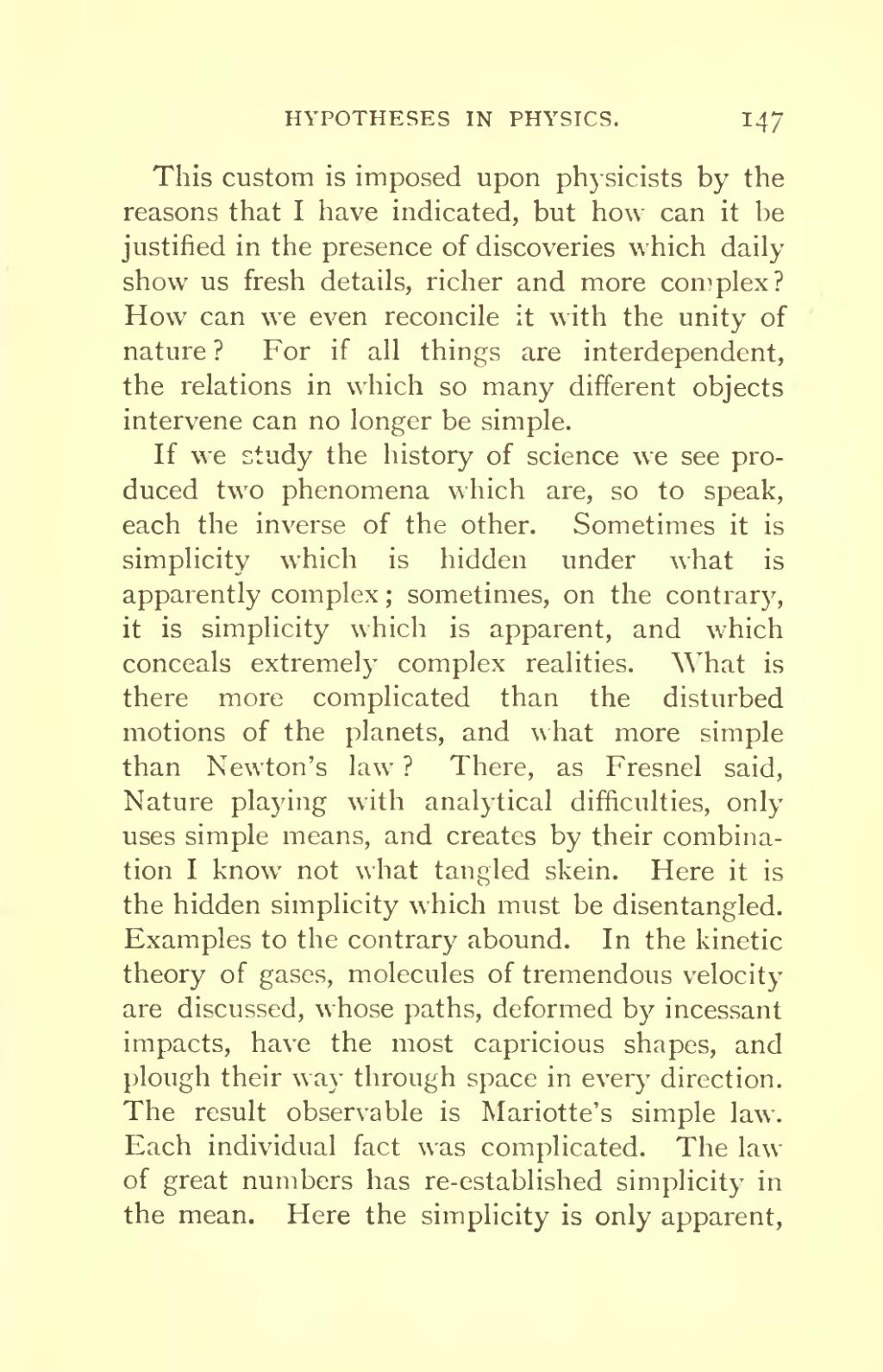This custom is imposed upon physicists by the reasons that I have indicated, but how can it be justified in the presence of discoveries which daily show us fresh details, richer and more complex? How can we even reconcile it with the unity of nature? For if all things are interdependent, the relations in which so many different objects intervene can no longer be simple.
If we study the history of science we see produced two phenomena which are, so to speak, each the inverse of the other. Sometimes it is simplicity which is hidden under what is apparently complex; sometimes, on the contrary, it is simplicity which is apparent, and which conceals extremely complex realities. What is there more complicated than the disturbed motions of the planets, and what more simple than Newton's law? There, as Fresnel said, Nature playing with analytical difficulties, only uses simple means, and creates by their combination I know not what tangled skein. Here it is the hidden simplicity which must be disentangled. Examples to the contrary abound. In the kinetic theory of gases, molecules of tremendous velocity are discussed, whose paths, deformed by incessant impacts, have the most capricious shapes, and plough their way through space in every direction. The result observable is Mariotte's simple law. Each individual fact was complicated. The law of great numbers has re-established simplicity in the mean. Here the simplicity is only apparent,
